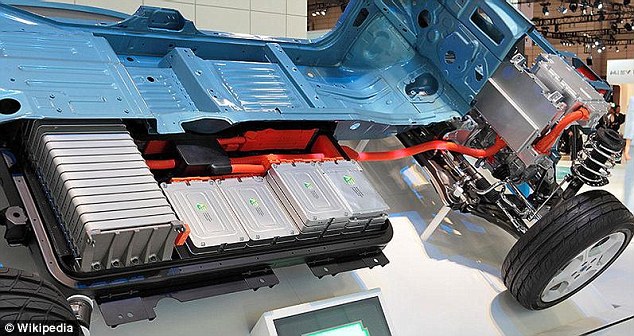Old Electric Car Batteries Can Be Given New Life
- 21/10/2015
- Transport
- Posted by Tessa Romarez
- Leave your thoughts
The auto and clean energy industries both have vested interests in finding effective ways of reusing old electric car batteries but have been unsuccessful until 2015.
Years of research and development have yielded potential solutions for electric car batteries that would otherwise be disposed in the trash or left to rot.
Nissan has announced its partnership with Green Charge Networks, a start-up, to reuse old batteries from its LEAF electric cars. The recycling solution: To use the old batteries for the storage of energy for use in commercial and industrial buildings. The partnership is considered as an important milestone in the two industries because Nissan’s LEAF is one of the bestselling electric cars in the United States with over 70,000 units sold.
While it may sound easy, reusing old electric car batteries isn’t easy. Electric batteries gradually lose their charging power over time until these become too weak for use in cars. But old batteries still have sufficient charge left in them for lighter uses.
Since electric cars are still relatively new in the auto industry, there were an insufficient number of old car batteries for recycling. This was also because majority of the electric cars purchased in the past five years did not require new batteries.
But electric cars are now hitting their middle age so owners are more compelled to replace their batteries. The result: A ready supply of second-hand electric car batteries, which can reused for commercial energy storage.
The Nissan LEAF electric cars are not the only electric cars with old batteries planned for reuse in this manner. GM has also announced its separate initiative at the Advanced Automotive Battery Conference in relation to the Chevy Volt, its own electric car. GM has partnered with ABB and Duke Energy, both giants in the power and energy industry, on the solution.
Meanwhile, Green Charge Networks is among a few of the green energy start-ups using low-cost batteries in assisting corporate clients manage their energy consumption. In a typical set-up, its system automatically shifts energy consumptions from the power grid to the batteries especially in the face of high electricity rates (e.g., summer season).
The goal: To help clients in lowering their electricity bills and carbon footprint. Among Green Charge Networks’ clients are 7-Eleven, UPS, and Walgreens.
In many cases, the battery management companies will install the recycled electric car batteries free of charge. They make money by taking a cut of the savings enjoyed by their clients over time. Also, they reduce their operating costs by repurposing used LEAF batteries instead of purchasing new ones.
Emphasis must be made that Nissan has made other attempts at reusing LEAF batteries. Nissan entered into a joint venture with Sumitomo, known as 4R Energy, with focus on researching ways to give old batteries a second life.
The Green Charge Networks deal goes further because it repurposes LEAF batteries for commercial use. Its CEO, Vic Shao, will start the installation of reused LEAF batteries by the fourth quarter of 2015. As a prelude, one of Nissan’s facilities in California will be equipped with used batteries.
Ultimately, getting more uses out of second-hand electric car batteries make sense.
Photo Courtesy : dailymail.co.uk

